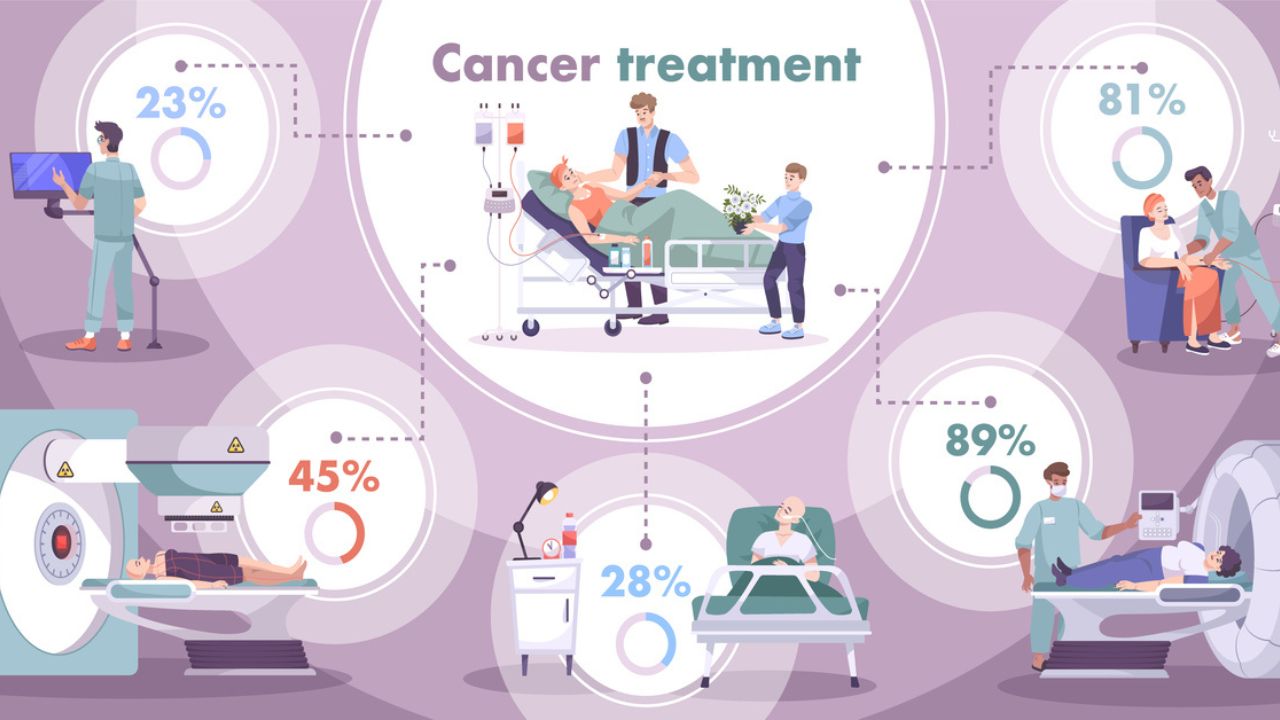Cancer Treatment in India: Comprehensive Guide
Understanding Cancer
Cancer is a severe illness marked by uncontrollable cell growth, which often leads to the formation of tumors. The disease arises when the body‘s regulatory mechanisms fail, causing old cells to multiply uncontrollably instead of dying. This abnormal cell proliferation can lead to tumors, which can be either malignant or benign. According to the World Health Organization (WHO), cancer is a leading cause of death worldwide, with an estimated 12 million deaths in 2022.
Defining Cancer
Cancer occurs when cells grow uncontrollably and spread to other parts of the body. Normally, cells grow and divide in an orderly manner. However, when this process malfunctions, it results in the development of tumors. Tumors can be malignant, meaning they invade nearby tissues and potentially spread to other areas, or benign, which do not invade other tissues. Malignant tumors can metastasize, creating secondary tumors in other parts of the body.
Characteristics of Cancer Cells
Cancer cells differ from normal cells in several ways:
- Uncontrolled Growth: Cancer cells grow without the usual signals that regulate cell division.
- Avoiding Death: They evade the signals that trigger programmed cell death.
- Invasion and Metastasis: Cancer cells infiltrate neighboring tissues and spread to other body parts.
- Angiogenesis: They stimulate the growth of new blood vessels to supply nutrients and oxygen to tumors.
- Immune Evasion: Cancer cells can hide from or even manipulate the immune system to their advantage.
- Genetic Changes: They often have abnormal numbers of chromosomes and altered genetic material.
Treatment Options
India offers a range of advanced cancer treatments:
- Surgery: This method involves removing as much of the cancer as possible. It is most effective for solid tumors and may cost between $4,000 and $12,000 in India.
- Chemotherapy: This involves using drugs to kill cancer cells, but it can also affect healthy cells. Chemotherapy sessions in India range from $300 to $1,500.
- Hormone Therapy: Targeted at hormone-sensitive cancers like breast and prostate cancer, this therapy aims to block or remove hormones that fuel cancer growth. The cost in India typically ranges from $4,000 to $5,000.
- Targeted Therapy: This approach uses drugs to specifically target cancer cells based on their unique characteristics. It is less harmful to healthy cells and costs between $2,700 and $3,500 in India.
- Immunotherapy: This treatment boosts the body’s immune system to fight cancer. It can cost between $3,500 and $5,500 in India.
- Radiation Therapy: Using high-energy beams to kill cancer cells, radiation therapy can be administered externally or internally. Costs in India range from $800 to $25,000.
- Bone Marrow Transplant: This procedure replaces damaged bone marrow with healthy stem cells, costing between $13,000 and $35,000 in India.
- Robotic Surgery: Utilizing robotic technology, this minimally invasive surgery offers benefits like reduced pain and quicker recovery, with an average cost of around $8,000 in India.
Conclusion
Cancer treatment in India encompasses a variety of advanced options, each suited to different types and stages of cancer. Consulting with a specialized oncologist can help determine the most effective treatment plan based on individual needs and conditions.





